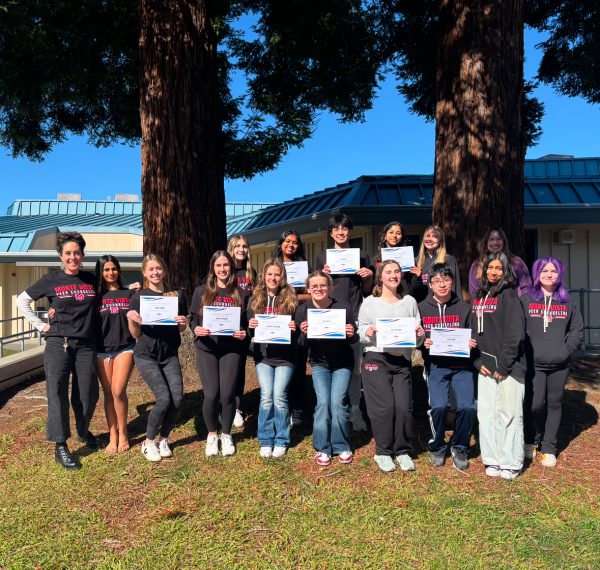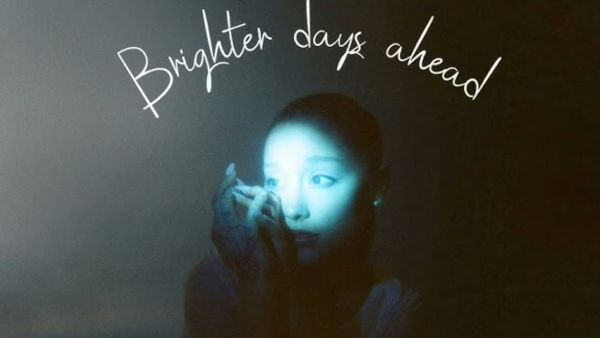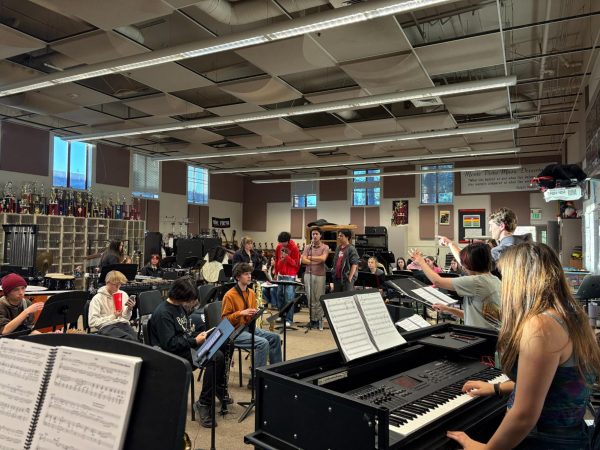Romanticizing the mundane

Courtesy of downtown_videos on TikTok
On the social media app TikTok, a video with the title “How to romanticize your life” has over 100,000 likes. The video suggested making an “autumn playlist” to enhance your life to feel more exciting and pleasurable.
Waking up to a rainy day should feel depressing; however, this dreariness only adds to your morning montage of making a hot cup of coffee. The routine drive to school would usually feel monotonous, yet today the melancholy music mixed with the fall weather and that hot cup of coffee creates a vibe that is undeniably, intimate, and romantic.
In today’s world, many teen girls romanticize almost every aspect of their lives to achieve an “aesthetic.” From studying English, to something as simple as taking a shower, we find a way to make it a mood.
Viewing life through a rose-colored lens isn’t a new way of thinking; it dates back to the Romantic Movement of the 19th century.
This movement worshiped the amplification of emotions and emphasized the appreciation of the beautiful, yet simple things in life.
The 21st century revival of romanticism is thanks to the popular social media platforms TikTok and Pinterest. Scrolling through these apps, countless videos with captions such as “Ways to romanticize life!” or “How to create an aesthetic!” pop up.
These videos, catering to teenage girls, have influenced this generation to create a lifestyle that is “aesthetically pleasing” in order to further enjoy life.
One crucial element of romanticizing life, according to TikTok, is music.
The cliché of listening to the soundtrack of your own movie is very prominent at Monte Vista. Walking through the halls, almost every person you see has headphones in. Music contributes to a more romantic and interesting lifestyle, warping reality to become what you want.
Ruby Toombs, a Monte Vista junior, reflects on music’s role in her daily life.
“I use music to romanticize my life by making playlists for situations that I feel like would play if the activity, like studying, was in a movie,” Toombs said.
Creating different playlists inspires students when working on homework. Students find that romanticizing studying increases efficiency and overall turns a once tedious task into one that is enjoyed due to the reward of feeling productive.
Students further romanticize schoolwork by studying at locations such as cafés or libraries. Working in environments where your surroundings are pleasing to you generates inspiration.
Although romanticizing life can increase student’s productivity because it motivates them to be “studious,” when romanticism is in the hands of young and yes, dramatic, girls, there are bound to be negative outcomes. Toombs weighs the pros and cons of romanticism.
“Romanticizing life in general is helpful because if I do something like romanticizing studying, I’m more likely to do it because I want to do it,” Toombs said. “But making things like mental illness an aesthetic is bad because it shouldn’t be romanticized.”
Many videos on TikTok paint mental illness as something to be desired because, when romanticized, it seems “fascinating.”
You can’t sugarcoat everything in life, especially when it is incredibly harmful to those who suffer from severe illnesses like depression or addiction.
When being used in a positive sense, romanticizing can overall enhance your life. Through romanticism you are able to enjoy the little things and live life to the fullest. Even if romanticism essentially paints a false reality, having a positive mindset creates productive habits as you are able to find beauty in everyday life.

Emma Hedican is a junior at Monte Vista. She hopes to contribute to the supportive environment in her...






